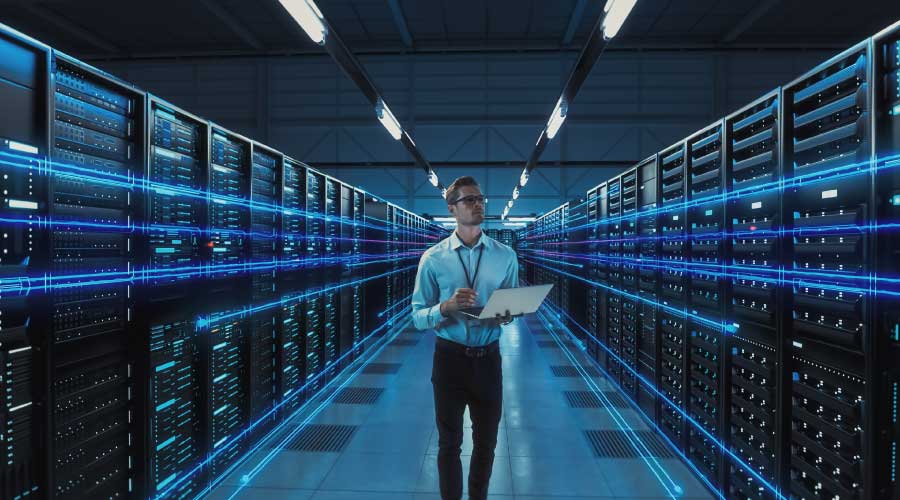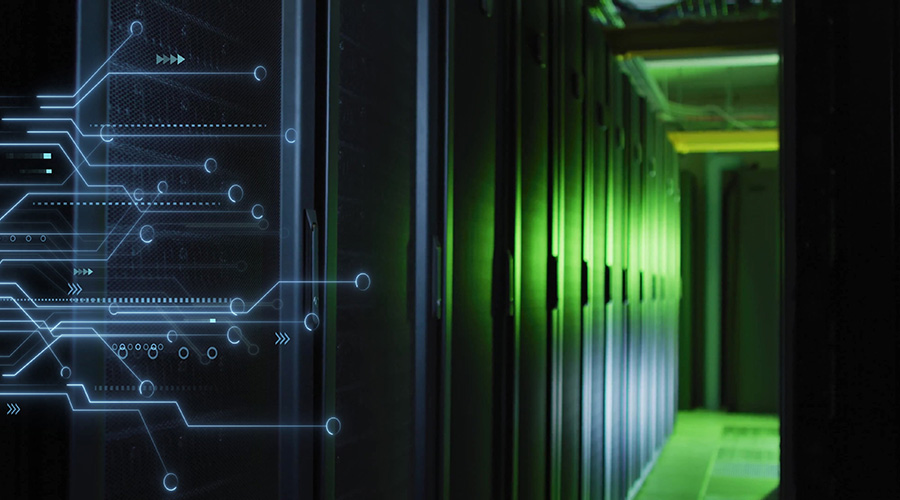The Role of a UPS in Efficient Data Centers
Uninterruptible power supply (UPS) systems are at the heart of a data center's electrical system. As with AC transformers, a small portion of the UPS output is wasted due to inherent losses in systems components. UPS efficiency is also dependent upon loading. Combined inefficiencies in these areas results in significant wasted energy. Conversely, because these systems run continuously, even small efficiency improvements can bring significant savings. Design strategies should therefore address both system configuration and UPS technology selection. Aim for system topologies that maintain the highest module load factor possible while satisfying reliability requirements. When making decisions on which UPS technology or configuration to specify, focus on life-cycle cost rather than first cost. A more efficient UPS system will cost significantly less to operate and cool and may represent a lower expense over its operating lifetime. Although systems using double conversion technology are most prevalent, their maximum efficiencies average in the low 90 percent range. A delta-conversion module operates as high as 97 percent efficiency.
Another trend in data center energy efficiency is to design the primary side of power distribution in the data center to a higher AC voltage than the customary 480 volts. A 575-volt system, for example, will allow the same size electrical conductor to carry 20 percent more power than at 480 volts, potentially reducing electrical feeder sizes and first cost. Because most major electrical distribution equipment (such as breakers, switchgear, transformers and motors) is already rated for 600-volt operation, this approach should not require any specialized equipment.
Savvy companies are directing their IT, facility management and design teams to reduce energy consumption within the data center while still achieving high performance and reliability. This approach can serve as a comprehensive framework for developing and applying energy efficient practices throughout a company's mission critical portfolio to reduce the environmental impact of its operations, create significant energy savings and prepare for emerging efficiency benchmarks and future regulatory standards.
Marcus Hassen, P.E., LEED AP, is an associate partner at Syska Hennessy Group with more than 20 years of engineering and project management experience, focusing on advanced technology including data centers, biotech and pharmaceutical facilities.
Related Topics:













